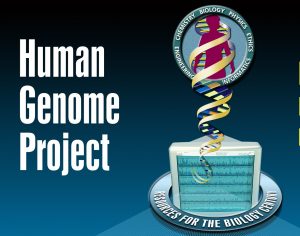Recently there has been quite a lot of buzz around methylation and its contributing role to many different health conditions including autistic spectrum disorder (autism, ADD, ADHD, oppositional defiant disorder), autoimmune disorders (rheumatoid arthritis, lupus, autoimmune thyroiditis, inflammatory bowel disease, type 1 diabetes), mood disorder (anxiety, depression), heart disease, stroke and even cancer. In this post I will try to make some sense of this important concept and why it is important to be aware of it.
Our bodies contain enzyme machinery to perform a vast array of chemical reactions necessary for life. Scientists often organize these chemical reactions into metabolic pathways that involve a series of reactions that occur together in a sequence. We have metabolic pathways to burn  sugar for energy, to detoxify harmful chemicals that we ingest, to make DNA for cell reproduction, to make important brain chemicals like serotonin and dopamine and many others. Many of these metabolic pathways require a methylation reaction. Stated simply, a methylation reaction takes a portion of a chemical molecule called a methyl group and moves it from a donor to a recipient. The recipient molecule has to have the methyl group as part of its structure to function normally. We now know that there are over 200 different chemical reactions in our metabolic pathways where methylation has to occur. Methylation is occurring trillions of times a day throughout all of our cells and tissues. When our bodies do not methylate with ease, we suffer from immune system problems, hormone balance problems, digestive problems, energy problems, brain problems including moods and memory just to name a few. Abnormal methylation blocks normal function of almost all our cells and tissues!
sugar for energy, to detoxify harmful chemicals that we ingest, to make DNA for cell reproduction, to make important brain chemicals like serotonin and dopamine and many others. Many of these metabolic pathways require a methylation reaction. Stated simply, a methylation reaction takes a portion of a chemical molecule called a methyl group and moves it from a donor to a recipient. The recipient molecule has to have the methyl group as part of its structure to function normally. We now know that there are over 200 different chemical reactions in our metabolic pathways where methylation has to occur. Methylation is occurring trillions of times a day throughout all of our cells and tissues. When our bodies do not methylate with ease, we suffer from immune system problems, hormone balance problems, digestive problems, energy problems, brain problems including moods and memory just to name a few. Abnormal methylation blocks normal function of almost all our cells and tissues!
It is fair to ask “So What?”
 This is where it starts to get interesting. A great many Americans are born with genetic mutations that cause an alteration of methylation and impede its progress. These genetic mutations are called single nucleotide polymorphisms or SNPs. When you are aware of the condition you can take beneficial steps to bypass or detour around the abnormality. Thanks to the completion of the human genome project completed in 2003, we can now affordably test for the SNPs that result in abnormal methylation. At Forum Health Austin, I have an interest and experience in guiding individuals on how to identify and treat these inherited deficiencies.
This is where it starts to get interesting. A great many Americans are born with genetic mutations that cause an alteration of methylation and impede its progress. These genetic mutations are called single nucleotide polymorphisms or SNPs. When you are aware of the condition you can take beneficial steps to bypass or detour around the abnormality. Thanks to the completion of the human genome project completed in 2003, we can now affordably test for the SNPs that result in abnormal methylation. At Forum Health Austin, I have an interest and experience in guiding individuals on how to identify and treat these inherited deficiencies.
Actually there are quite a few mutations or SNPs that disrupt normal methylation. Probably the best known is the MTHFR C677T SNP. This is not a rare mutation. Some studies show that it is present in over 40 percent of individuals tested. Individuals who are born with two copies of this mutation (one from the mother and one from the father) known as the homozygous condition have a greatly reduced ability to activate a vitamin required for the methylation reactions to proceed. My experience has shown that when the condition is identified and the appropriate vitamins are replaced in the active forms significant recovery is seen and disease can be prevented before it even starts. Even the effects of aging which are often the result of persistent inflammation can be delayed. It would be my privilege to help you or your loved ones become aware of and overcome this problem and many others associated with chronic inflammation-caused disease.
Wally Taylor MD








